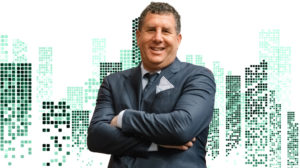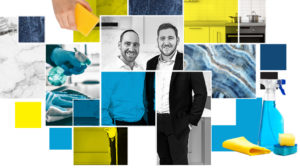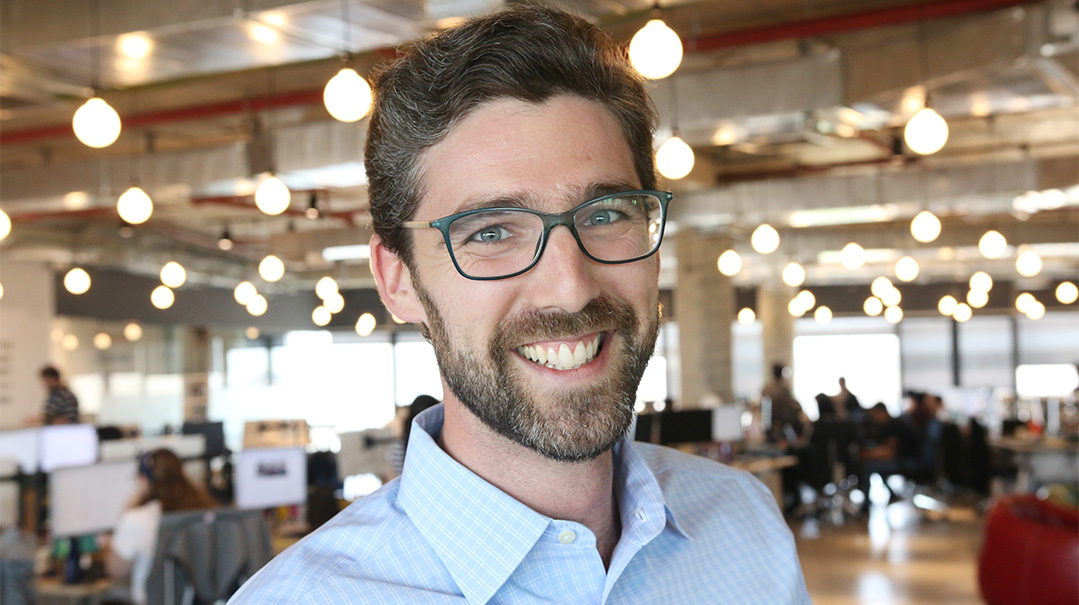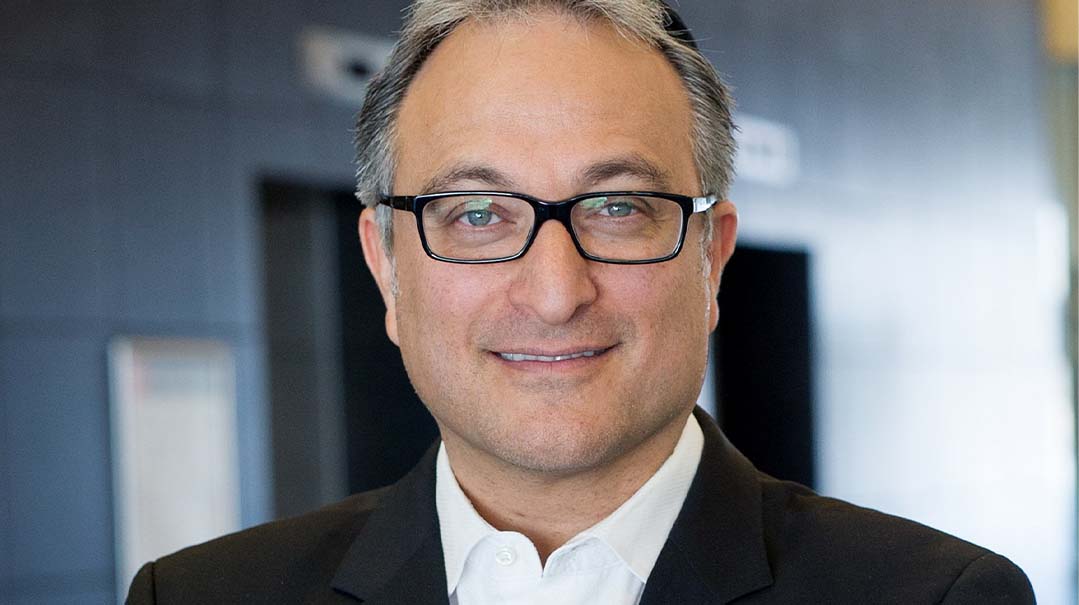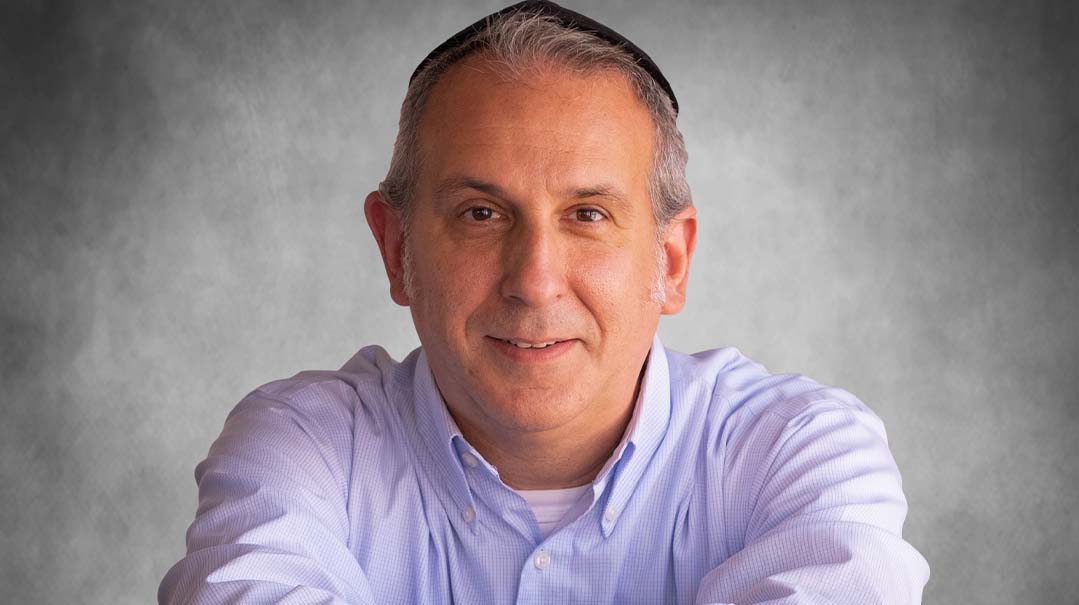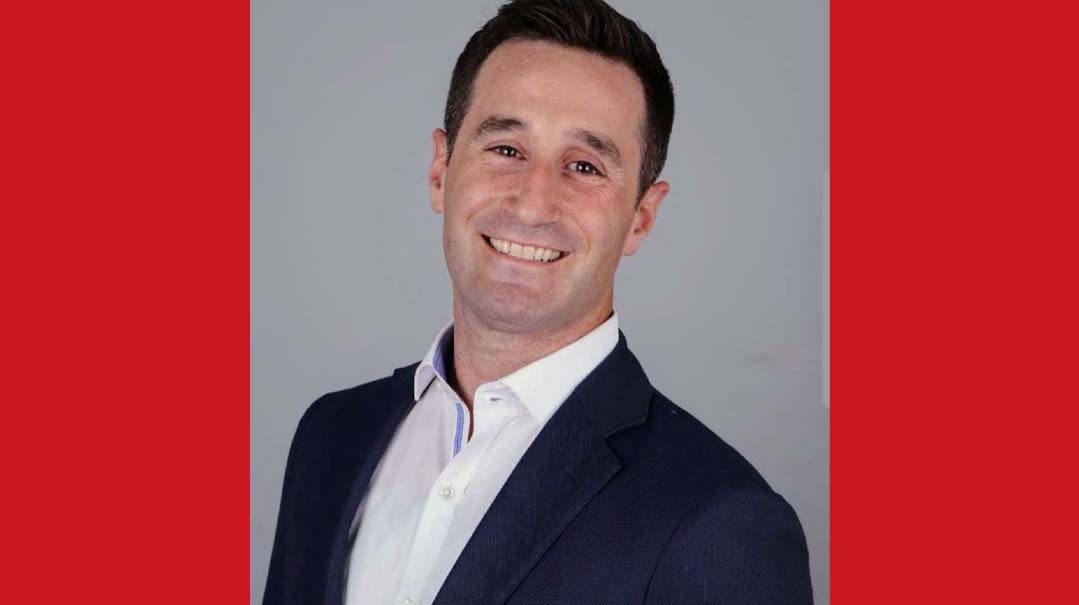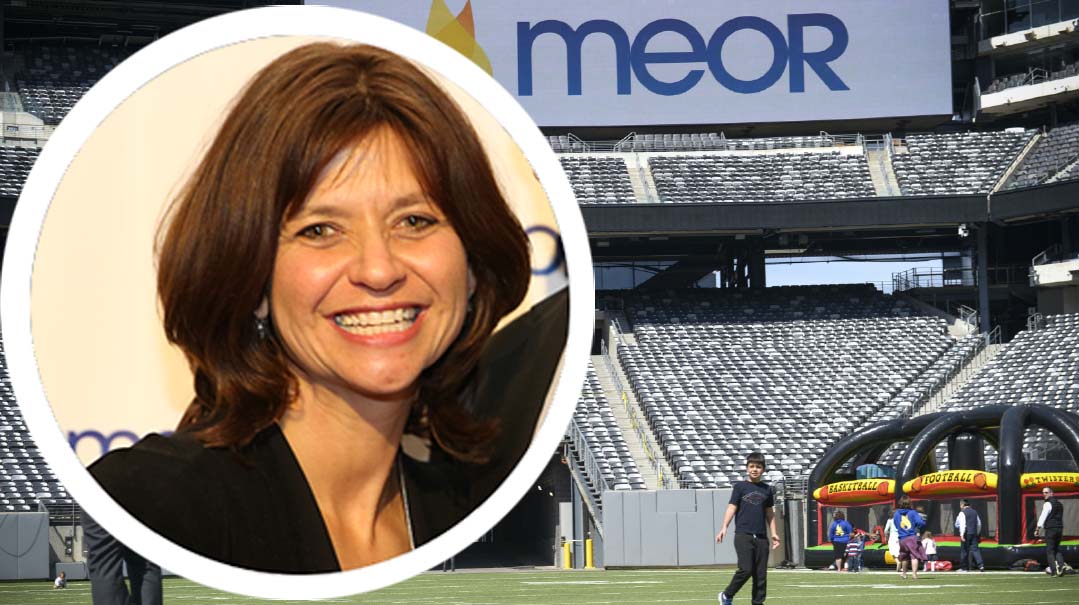Work/Life Solutions with Pesach Woznica

"Don’t view issues that arise as 'problems' but rather as 'challenges'"
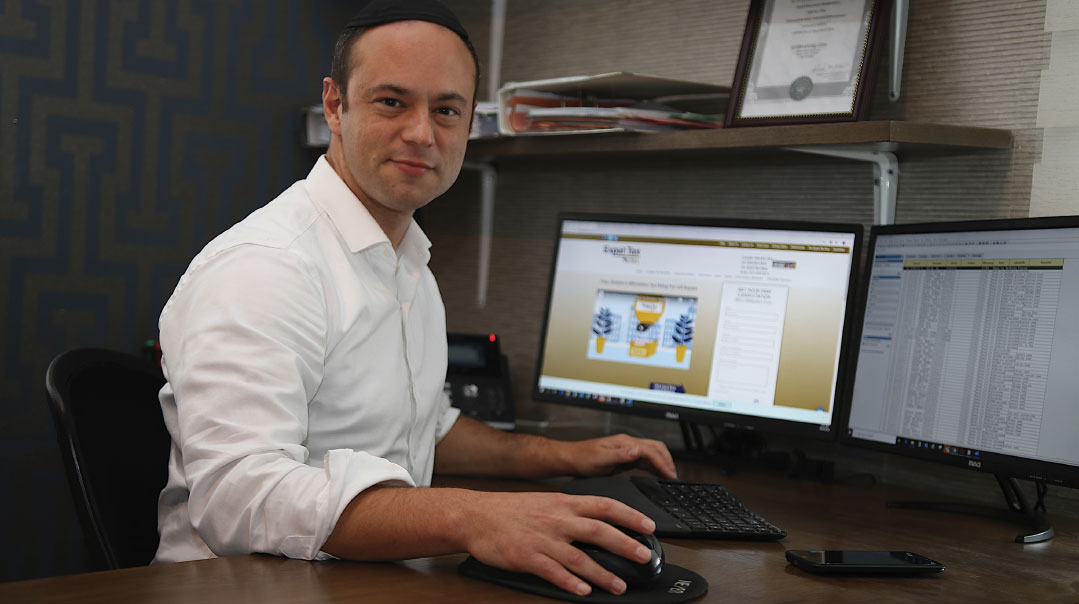
(photos: Meltz Photography)
Who Pesach Woznica, Founder & CEO at Expat Tax and PW Tax
What Pesach runs a highly respected accounting firm, servicing US citizens living abroad with their complex multinational tax issues. But in addition to all the innovative ways the firm helps its clients, there’s one element about his business that stands out: His 24 employees are all chareidi women, and their work environment is of the highest standards of professionalism and modesty.
Where and Why Pesach’s story is real, relatable, and inspiring. Born and raised in Toronto, Pesach learned at Ner Yisroel there and then in Rav Chaim Ilson’s yeshivah in Jerusalem. He then returned to Toronto, where he completed his undergraduate degree at York University while learning full-time at Kollel Avreichim (under Rav Shlomo Miller and Rav Chanoch Ehrentreu). He got married, completed his CPA, and then moved back to Eretz Yisrael, expecting to attend Ner LeElef’s semichah program and then go into chinuch in a small community.
But Hashem had other plans. Somehow, he found himself back in Rav Ilson’s kollel, later moving to Aish, and then to the Mir. And what started as dabbling in accounting (filing tax returns) “on the side” to make ends meet, gradually turned into a full-time job — while keeping a full two sedorim in kollel. Feeling more comfortable with his professional trajectory and wanting to find the right community for his growing family, Pesach then moved to Ramat Beit Shemesh and grew his practice to over 20 employees. He balances his time with learning, exercise, and quality family time. He’s modest, always smiling, and an all-around awesome guy. I’ve looked up to him for a long time, and I’m excited to finally share his story and insights with you.
1 of 9 What opportunities or personalities played a key role in your career?
My father is a partner in a tax/accounting firm. Growing up, I never dreamed of being an accountant — I always respected my father for working hard but didn’t particularly relate to that part of his life. I didn’t realize it at the time, but the way my father looked at his work/family life balance was very special and something not all my friends merited growing up. I remember my father once told me about a good friend of his, a lawyer, who woke up one day and realized that he had essentially missed out on some of his best years while his kids were growing up. He realized too late that once your kids get to a certain age, if you have not developed a close connection to them by that point, it’s extremely difficult to cultivate the connection later on.
The relationship I had with my father was the exact opposite. I used to wait for him to come home from work and would immediately pull him outside to practice baseball, football, or ping-pong before dinner, and would then tug on him to come outside with me again immediately after dinner to continue. I remember him smiling and saying he needed to digest his food, but he would quickly acquiesce and come out. When I had tests in school, he would spend hours with me going over the material and would always make me feel special by saying that I was so smart. Sundays were always spent doing some fun activity with him, whether it was going to the ball game, playing football, or sledding in the snow.
I now have the zechus to run my own accounting firm, and when my father is in Israel, I spend almost the entire day with him, first learning Torah together and then making our way to the office to complete our work day together.
Without even fully realizing it, he had essentially taught me all about work and family life balance and ultimately how to be a great accountant while not giving up on the most precious things in life.
3 of 9 What do you do to relax, recharge, or simply have fun? How do you make time for that, and how often?
I love to exercise and make it a priority throughout the week. I go mountain biking, swimming, and do self-weight bearing exercises that include push-ups, sit-ups, and pull-ups. Certain types of strenuous physical activity release endorphins — chemicals in the body that help the brain function much better and be less sluggish. I feel that I’m able to accomplish a lot more, both in quantity and quality, when I’m in shape and exerting myself with physical exercise. It also has a great calming effect on the body and mind and puts me in a positive, relaxed mood, which enables me to deal with the daily challenges both at work and at home much better.
In addition to exercise, I absolutely love music — both listening and playing. I used to play piano professionally on the Jewish wedding scene. This was actually my full-time profession while I was in kollel and studying to become an accountant. I kept up playing professionally for some time, but had to stop once my accounting firm grew, baruch Hashem, to where it is at this point. I still love to listen and play, though, just not in a professional setting.
4 of 9 What was your most resounding failure? What did you take away from that experience?
Once my regular tax firm was established as a reputable US CPA firm, I decided to venture out and open up a lower-end simple US tax preparation firm to compete with myself to capture a larger share of the market. This turned out to be a failure for several reasons: I take pride in the level of service I provide and am very involved in the business, and it’s very important to me that who I am as a person flows through into all areas of the business. Part of what has made my regular PW Tax business successful is that my clients know I’m thorough, professional, honest, stand fully behind my work, and am always trying to provide superb customer service. A low-cost tax service with a lower level of service was simply not who I am, and it was therefore bound to fail from the start. When issues arose, I approached them with the same seriousness and thoroughness that I did with my regular business, but that wasn’t feasible or profitable for that business model. I realized after a while that my personality and core values needed to be manifested in any business that I would run, and if not, I wouldn’t feel a sense of accomplishment, and things wouldn’t work well.
Although it ultimately failed, it did give me the confidence and desire to venture out and expand my existing business into other areas that were in line with who I am and with the same overall vision as my existing business. It ultimately inspired two new successful lines of business, both of which are 100% aligned with my ethos of providing only the highest level of customer service and professionalism, and therefore come together and are able to intertwine and coexist with my original PW Tax business seamlessly.
7 of 9 If you were asked to deliver a TED Talk that would be watched by 50 million people, what topic would you choose to speak about? Why?
Balance, balance, and balance. I’m 38 today, in the heart of my career with a growing US expat and Israeli tax firm with over 23 employees. I look around with my wife at our friends who are at similar stages in their lives, and we notice that there is a tendency to throw themselves into their careers and let everything else in their lives fall by the wayside. At some point in time, my wife and I received a hidden blessing in the form of a sequence of events that shocked us to the core and caused us to wake from our “slumber.” Without this shock, we likely would have continued on the same trajectory we were on, just like most of our friends, and would likely have woken up in our mid 50s and asked ourselves, “Where did the last 30 years go?”
I always knew that growing in Torah learning, becoming close to Hashem, performing mitzvos, and spending time with and cultivating meaningful relationships with my family were the most important things in my life, and that on the side, I had to work to make a living. Although most of us know this in theory, on a practical level, when one gets involved with work and career advancement, it’s very easy to get pulled in and lose focus.
I believe that maintaining balance in one’s life is a key to success. Working more hours doesn’t necessarily mean you will accomplish more. I have personally found that when I have a great seder in the morning, have a great workout, or spend some quality and meaningful time with family, I’m able to accomplish a lot more at work during a lesser amount of time than if I’d simply worked more hours at the office.
8 of 9 Can you share a time when you had to navigate the tension between your deepest values and the business world?
Growing up, I always attended all-boys schools, all-boys camps, all-boys extracurricular activities, and spent many years in yeshivah exclusively with boys. I did attend mixed classes at university but didn’t dorm and really didn’t have anything to do with the other students besides for my yeshivah friends. I remember always running to class from the beis medrash and then running back after class. Upon graduating university, I went back to full-time learning for a while in Israel. They say that entering a mixed-gender workforce is very often a challenge for a yeshivah guy who has always been in a male-only environment. No one really prepared me for the male/female ratio that I would ultimately experience at work.
As the owner and only full-time male in my firm, I sometimes feel outnumbered and out of place in our current office. I tried to hire male staff but they either moved on or didn’t work out. Hashem wanted me to have a current all-female staff for some reason. I wasn’t specifically looking to hire only females, but the reality is that they all work together very well, and there is a certain comfort level and synergy that exists specifically because they are able to feel very comfortable and open with each other. Both our staff and the clients end up benefiting from this positive and happy environment.
It would be nice to be able to socialize once in a while at work, but I have always had very clear boundaries with the opposite gender and therefore the socializing stays at a pretty basic level — I leave it to the other 23 staff members to socialize among themselves. I’m lucky to have my father work together with me for about three months out of the year, which balances things out a bit. Additionally, I spend a lot of my day speaking to clients and attend a daily chaburah, and my staff is very understanding of the situation as well — they do their best to make me feel as comfortable as possible under the circumstances.
9 of 9 If you were advising a young man/woman hoping to launch a career as an entrepreneur, which “dos” and “don’ts” would you share?
My wife and I consulted with Rav Shlomo Miller from Toronto a while back regarding the issues that arise with Americans/Canadians raising their children in Israel. The guidance that he gave us left a big impression on me. He said that every person will tell you something different, and it will be based on their own experiences. He didn’t go on to tell us what works and what doesn’t — I think he was trying to teach us a much broader lesson in life, that there are many things in life that are not black or white, and that the reality is that there is not necessarily only one way to get to the right place and one way to get to the wrong place. Life is much more complex than that. Following this lesson, I can only share from my own experiences as to what worked for me and what didn’t work for me and I hope that this will be at least of some value to readers.
*Make sure to have your priorities straight and don’t lose focus of what is important in your life. It’s important to do the proper hishtadlus and give yourself the best chance at succeeding. However, in today’s fast-paced and competitive business environment, it’s very easy to get caught up in the day-to-day hustle-bustle and lose focus on your priorities and long-term life goals. You don’t want to wake up 20 years into your career, happy with where you’ve taken your career, but unhappy with your spiritual growth and unhappy with the amount of quality time that you have been spending with your family.
*Not everything is going to go as you plan when trying to build a business or career. Realize that Hashem is in control and that all you can do is the appropriate amount of hishtadlus to make things work well. When things don’t go as you would like, don’t get down and defeated. Just continue plugging away and figure out how best to proceed with the set of circumstances that you are faced with.
*Consult with external sources, like an experienced business consultant, for guidance as to how to navigate through growth hurdles or challenging times. Don’t think that you are being smart and strong by trying to figure it all out on your own. It may be much smarter to reach out for help from someone who has traveled your path before and can get you to where you want to go much faster and with fewer hiccups along the way.
*Realize and appreciate that if you are in a service-based business, your employees are likely your most valuable asset. Treat them with utmost respect and honesty, and empower them by giving them as much decision-making ability on their own within their workspace. From my experience, employees want to be given very clear direction and guidance, but they also feel empowered by being trusted and given the ability to make decisions that make a difference. An employee who does not feel stifled will end up producing better and more efficiently. Listen to your employees as well. One can learn a tremendous amount from them as they are experiencing things from a different angle than you are.
*Pay close attention to your clients. Try to hone in on unhappy/disgruntled clients and speak to them to figure out what went wrong so that you can learn from your mistakes and improve things for your existing and new clients.
*Don’t view issues that arise as “problems” but rather as “challenges.” It’s much easier to be motivated to come up with solutions to challenges than to get rid of problems.
As the COO of Partners in Torah, Moe is spearheading a digital transformation, strategic partnerships, and global expansion. Previously, he was the Founder & CEO at Winfluencers, the Head of BizDev for Hometalk, Strategy Consultant for Deloitte, and Regional Director for the Lauder Foundation. He holds an MBA and semichah, and published his first book, The Gift of Stuttering (Mosaica Press, 2016). He also teaches a Daf Yomi shiur, produces inspirational videos for Aish.com, and gives lectures to audiences worldwide. Moe lives in Ramat Beit Shemesh with his wife and children.
(Originally featured in Mishpacha, Issue 786)
Oops! We could not locate your form.



